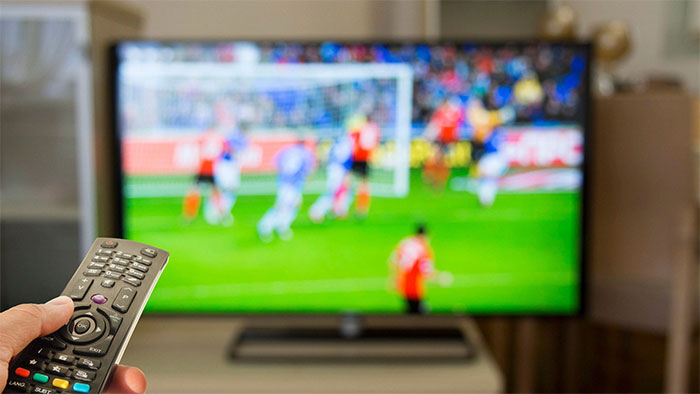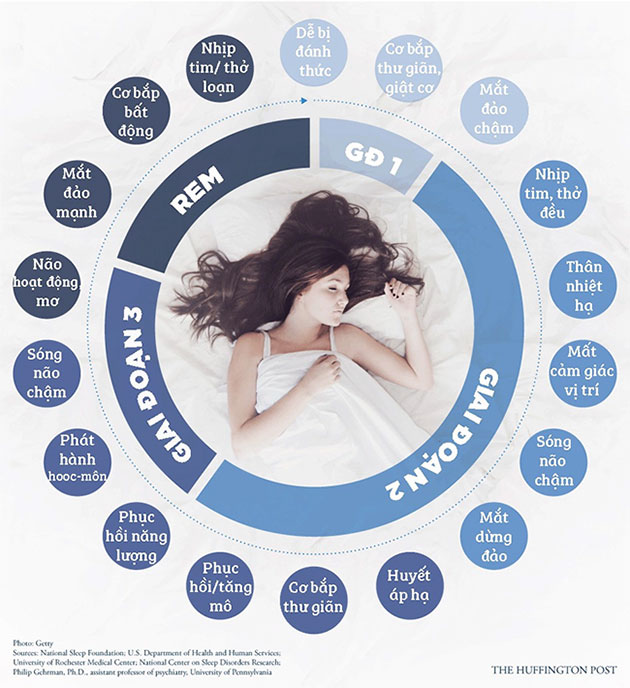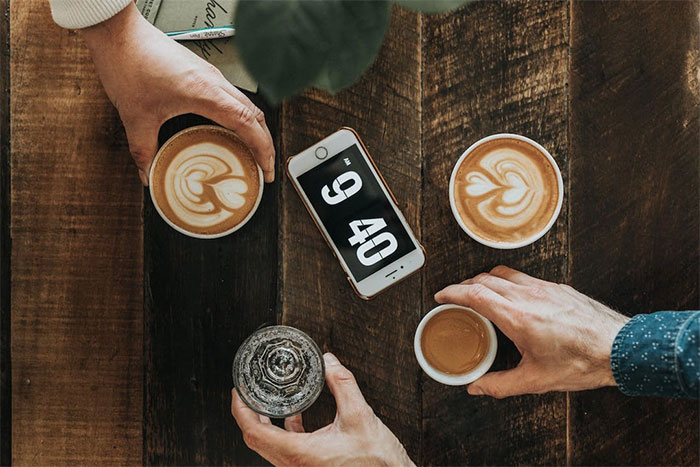The FIFA World Cup is known as the biggest football festival on the planet. However, because our Earth is a rotating sphere, it creates a significant barrier for billions of people wanting to fully enjoy the atmosphere of this celebration.
The barrier I am referring to here is the time zone difference, between day and night. For example, this year’s World Cup is held in Qatar, an Asian country in the +3 time zone.
It is indeed unfair that matches scheduled for the latest time of 10 PM occur at 2 AM in Vietnam, including up to half of the important matches from the Round of 16 to the final.

FIFA predicts that at least 5 billion viewers will watch World Cup matches on television this year.
FIFA predicts that at least 5 billion viewers will watch World Cup matches on television this year. This means that billions of people living in less favorable time zones like Vietnam have to sacrifice part of their sleep to enjoy the matches.
With the number of broadcasting rights sold, FIFA estimates that at least 5 billion viewers will watch World Cup matches on television this year. The audience for the final alone is expected to exceed 1 billion people.
This means that billions of people living in less favorable time zones like ours must sacrifice part of their sleep if they want to stay up late to watch the World Cup. The consequence is that they may suffer from sleep deprivation, waking up feeling groggy, having headaches, and feeling fatigued due to disrupted biological clocks.
So, is there a way to temporarily alleviate this situation? The following article will provide you with some useful tips. You can even apply them after the World Cup season to achieve better-quality sleep.
1. Go to sleep right after the match, don’t stay up until morning
Studies on sleep show that about 80% of the adult population needs to sleep from 7 to 9 hours each day. This is the necessary rest period to help your body recover and stay healthy.
However, a late-night World Cup match can easily shorten your sleep time by 2 hours, even 4 hours if you watch two consecutive matches, and up to 6 hours if you cannot fall asleep afterward and have to lie awake until morning.
So why does this happen?
We know that sleep is regulated by melatonin, a hormone that the body secretes to make you feel sleepy each evening. Melatonin levels peak around 2 AM to 4 AM.
Unfortunately, this is exactly when the World Cup matches are taking place according to Vietnam time. On one hand, the peak of melatonin makes you feel sleepy while watching the match. On the other hand, when the match ends, the drop in melatonin levels makes it hard for you to fall asleep afterward.
Moreover, blue light from the TV screen, the excitement of a nail-biting match, and the lingering emotions afterward can also make it difficult for you to sleep. So what’s the solution?


The blue light from the TV screen, the thrilling excitement of a nail-biting match, and the lingering emotions afterward can also make it difficult for you to sleep.
Learn from the warriors on the battlefield, who have to lie in damp trenches, endure fear, and face stimuli even stronger than in a football match.
The U.S. military has instructed its soldiers on a two-minute sleep strategy, hoping that sleep and rest will give them an advantage on the battlefield. Fortunately, we can still sleep like a soldier even while at home. Here are their steps that you can try:
Step 1: Ensure your bedroom is dark and cool, turn off all devices that may cause noise, such as notifications on your phone, and lie down.
Step 2: Relax your facial muscles. First, tighten them by frowning, and then gradually let your muscles relax naturally. Allow your tongue to rest freely anywhere in your mouth.
Step 3: Once you feel your face has deflated like a deflated balloon, let gravity pull your shoulders down toward the ground naturally. Let your arms fall freely as well, one side at a time.
While doing this, breathe in and out, listening to your breath. With each breath, allow your chest to relax gradually. Then continue to let gravity pull your thighs and legs to relax.
Step 4: Once you feel your body like a lump of melted clay, try to clear all thoughts from your mind for at least 10 seconds. If thoughts come to you naturally, don’t dwell on them; let them pass. If you have to think, just focus on keeping your body relaxed. After a few more seconds, completely clear your mind.
Step 5: Now, imagine one of the following two scenarios: you are lying on a boat in a tranquil lake with a clear blue sky above, or you are lying on a soft hammock, gently swaying in a pitch-black room.
If you are not good at visualizing, you can chant, “Don’t think about anything, don’t think about anything, don’t think about anything” for 10 seconds instead of imagining the lake or the hammock or something similar.

You can apply the military trench sleeping method to cope with the stimuli from a football match.
Up to 96% of soldiers who have applied this sleeping method report that they have successfully fallen asleep within 2 minutes. Their advice is that you just need persistence; you may not succeed on your first try, but keep practicing this sleep strategy on the following nights, and you will see results.
2. Calculate sleep cycles to wake up without a headache
Sleeping is one thing; waking up is another. Have you ever experienced sleeping more than 9 hours, waking up still feeling a headache and sleepy? But there are times when you only sleep for about 3 hours and wake up feeling refreshed immediately?
This happens because our sleep each night is actually divided into 5 cycles. Each cycle goes through 4 stages, or phases of sleep, including: light sleep, moderate sleep, deep sleep, and REM sleep.
Light sleep, or stage 1, is the earliest stage of sleep and is a transition between wakefulness and drowsiness. Anyone can easily be awakened during this stage. In fact, when you wake up from stage 1 of sleep, you hardly feel like you have just slept at all.
If there are no external influences, you will pass through this stage with your eyes closed, but it is actually turning slowly. All your muscles are relaxed. But sometimes it jerks suddenly, waking you up.
Stage 2 is moderate sleep, which is neither too deep nor too light. This is when you lose the sense of your surroundings. Your body temperature gradually decreases, and your heart rate and blood pressure slow down but remain steady.
It is during this time that your heart and vascular system are resting. This resting period is very necessary, proving that sleep can bring many benefits to the cardiovascular system.
Stage 3 is our deepest sleep stage. It is called slow-wave sleep, characterized by high amplitude and slow brain waves. You are in a state of deep breathing, blood flow to the body’s tissues is regulated, and your body is most relaxed and rejuvenated.
Finally, there is the REM sleep stage, where your body is still in a deep sleep state, but your brain begins to wake up and function at a frequency similar to when you are awake. Therefore, if you accidentally wake up in the middle of REM sleep, you will feel all your muscles paralyzed, unable to move, yet you are awake. This is the phenomenon known as sleep paralysis.

This is a 90-minute sleep cycle. Each night, you typically go through these 5 sleep cycles.
Not only waking up in the REM sleep stage causes issues, but Sara Nowakowski, a clinical psychologist and currently an associate professor at the University of Texas Medical School, states that waking up during deep or moderate sleep stages can also lead to unpleasant sensations such as headaches, still feeling sleepy, and wanting to go back to sleep.
The secret to taking short naps and waking up feeling refreshed is to complete the REM sleep phase and try to wake up during the light sleep stage, known as stage 1. To achieve this, just remember that each sleep cycle lasts about 90 minutes. Therefore, aim to sleep for 90, 180, 270, or 360 minutes.
For instance, if you can go to bed at 4 AM after the final World Cup match of the day, try to sleep for about 180 minutes (3 hours) until 7 AM, and wake up as close to that time as possible. Don’t try to sleep for an extra hour, as you may fall into a deep sleep around 8 AM and wake up feeling groggy. Unless you can sleep until 8:30 AM to complete a full 90-minute sleep cycle.
3. Maximize Your Awake Time
Now that you have your sleep strategy and wake-up tactics, you need to get to school or work, and we know that staying alert is essential for maintaining performance throughout that time.
At this point, many people might immediately think of caffeine. The truth is, you can drink coffee or tea in the morning to combat sleepiness. However, using caffeine effectively also requires strategy.
First, many people mistakenly believe they need caffeine to stay awake right after waking up. What’s the reality? Similar to melatonin, when you wake up in the morning, your body naturally releases a hormone to help you feel alert. This hormone is called cortisol, which peaks around 8 to 9 AM.
So during this time, if you’re craving coffee, it might just be due to your caffeine addiction. Drinking tea or coffee at this point helps alleviate withdrawal symptoms but doesn’t necessarily make you more alert.
Therefore, to achieve optimal energy in the morning, try drinking coffee after 9 AM.

For optimal energy in the morning, try drinking coffee after 9 AM.
But what’s the issue with caffeine? This chemical doesn’t actually give you a boost of energy. Instead, it merely temporarily blocks your feelings of sleepiness. Once the caffeine levels in your blood decrease, you’ll need to consume more caffeine to avoid feeling sleepy again.
Scientists say the half-life of caffeine in the human body is about 5 hours, meaning that in 5 hours, half of the caffeine has been eliminated from your body. Suppose you drink coffee at 9 AM; by 2 PM, you will likely need another cup of coffee.
This cup of coffee will help you overcome the energy slump that typically occurs from post-lunch until around 3 PM. But once again, the advice is not to drink coffee based on instinct.
Don’t wait until you feel tired to drink coffee, as that may be too late. Instead, try to drink coffee 30 minutes before you start feeling fatigued. But how do you know when you’re going to feel tired?
The answer is simple: observe your previous day. When did you experience a drop in energy, focus, and feel sleepy? Drink coffee half an hour before that time.
Additionally, if you can take a short nap, it can also help compensate for your nighttime sleep. People often wake up and drink coffee. But the correct formula is to drink coffee first and then take a nap.
Many experimental studies have shown that drinking coffee before a nap can help you wake up more easily, feel less groggy afterward, and improve both cognitive abilities and memory compared to just napping without coffee.
4. Use Natural Stimulants
Of course, many people will say, “I don’t want to use caffeine.” So how can you stay alert without stimulants? In fact, there are several natural methods you can apply. These methods can even benefit those who do use caffeine.
First, upon waking, expose yourself to light. Sunlight is a natural stimulant that helps your body produce more cortisol to feel more awake. Don’t forget that sunlight entering through your pupils is what sets your biological clock.
Unfortunately, this year’s World Cup takes place in winter. November isn’t the best time to get good sunlight, at least if you are in northern provinces like Hanoi.
However, you can invest in a sun simulation desk lamp and place it in front of your workspace. This can even enhance your focus when working, especially if the lighting in your office isn’t sufficient to keep you alert.

Exercising and maximizing light exposure can help you stay alert.
The next tip to keep you alert is to stay active. Numerous controlled studies have shown that morning exercise has effects comparable to caffeine in keeping you awake, enhancing short-term memory, and improving concentration while working.
The reason is believed to be due to dopamine and epinephrine, two hormones released by the brain when we exercise. They serve as a natural substitute for the effects of caffeine, helping you feel more alert and energized.
Another advantage of establishing a morning exercise routine is that it always has an overall positive impact on health, unlike relying on stimulants like caffeine.
For caffeine, studies have shown that regular coffee consumption can reduce the risk of type 2 diabetes, high blood pressure, and obesity. However, excessive coffee consumption can increase cholesterol levels.
Coffee may protect individuals against certain diseases like dementia and cancer, but it also poses risks for osteoporosis and rheumatoid arthritis.
Therefore, the advice is that if possible, you should replace your morning coffee with 20 minutes of exercise, such as brisk walking. This could serve as an effective method to wean off caffeine.
- The sad story behind the thousands of empty seats at the opening match of the 2022 World Cup in Qatar
- The boy who lost half a leg becomes a special ambassador for the 2022 World Cup
- Discover the secrets of the cooling system at the 2022 World Cup, making the outdoor stadium feel like an air-conditioned room


















































